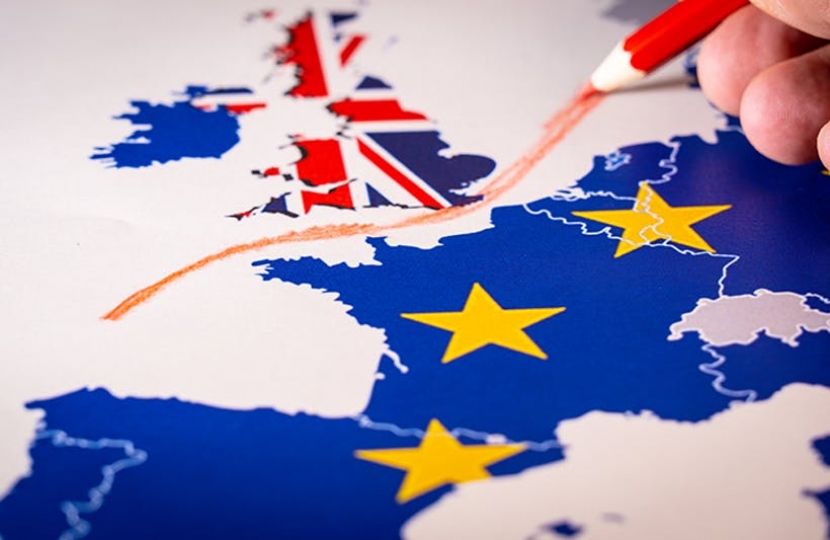
In 2016 I voted to leave the European Union. I am also a father, a husband, a rugby fan, a cricket follower, a dog lover, a Conservative councillor and a loather of “reality television”. For some reason though I am characterised as a “Leaver”. I don’t have a fundamental objection to this, I am unerring in my view on Britain’s membership of this particular multilateral international club; yet as we naval gaze at the divisions in our country it does strike me as part of the problem. “Leaver”, “Brexiteer”, “Remainer” or even “Remoaner” are easy labels to apply to “them”. On either side of the debate people seem to accept nuance. Not everyone who voted to stay in the EU had the same motives, and likewise for those wishing to exit, however we often only appreciate this variance amongst those with which we agree. The “other”, the “them” not “us”. If we persist in framing the debate in terms of “remainers” and “leavers” then we will never overcome the divisions that the debate has undeniably raised. When I say we, I mean we. This is not just limited to Government and Opposition, or the media. These terms and categorisations have become common parlance and that is where the real damage lies. We often look at friends and colleagues and try to mentally place them in one camp or another. Second guessing, often mistakenly, their views on departure from the EU on various traits that support our own prejudice. We can blame this on politicians who hold the opposite view from us - that is very easy, possibly true - but if it is to be corrected, it is for us to resolve.
If we cease to talk about, possibly even think about each other in terms of which way we voted three years ago we can begin to heal some of the divisions - even whilst the debate continues.
I have spent my entire adult life disagreeing with people. It is an occupational hazard in politics. The vast majority of those I have argued with I believe are well intentioned individuals who have a different view from me. That doesn’t mean I weaken my resolve. I will defend my position, and seek to change their minds or at least those around them, but ultimately I don’t think less of them as individuals.
The toxic nature of the debate we have become embroiled in is such that the label of “leave” or “remain” infers a prejudged set of qualities from the other side. Anyone who reads this thinking I am a typically “Brexiteer” attacking “remoaners” or a “leaver” making apologies for my own side are sadly missing the point.
We should not all agree with each other. Heaven help us the world would be duly, and almost inevitably a worse place without debate and challenge. Some issues are so fundamental in life that divisions are inevitable. Membership of a particular international club should not be one of them.
Tony Blair has said, “Brexit has become so bitter because it is about culture, identity, values and generation.” The rhetoric around the debate would certainly suggest as much, but with the greatest respect to our former Prime Minister I would argue that he is wrong.
If, as many people would argue, being members of the EU is about being open-minded, forward looking, compassionate, environmentally-concerned, liberal and in favour of free trade, then I can find many people who fit that category but happen to think that Britain can be all of those things outside of the European Union. Likewise if you think that membership of this group of nations equates to being protectionist, bureaucratic, unpatriotic I can point to many passionate supporters of Britain's continued position in Europe who would strongly disagree.
If we want to see membership of the EU as a generally centre or left-of-centre venture that extols the virtues of liberal openness, and the cause of the Brexiteers as one of fascist protectionism then we will truly be divided, regardless of the outcome of the negotiations or the current parliamentary tussle.
If we begin to listen to each other, hear the things our opponents are saying, seek to address them and yes, accept that we will not always agree; then perhaps we can begin to see the issue of Brexit as one with a myriad of views on all sides. One that must be resolved eventually, and not to everyone’s satisfaction, but one that does not have to be as fundamental to our existence as is suggested.
If as Tony Blair suggests we allow the divisions over what is a matter of policy to divide us on the basis of culture and values, then I fear our culture of public debate and our values of tolerance may already have been lost.
Whilst always trying to keep debate civilised I am sure that I have fallen into the trap of characterising the “other” in this debate. From now on I will make a determined effort to talk about the issues at play and not to talk about “remainers” or “leavers”.
Of course sweeping generalisations have their place in illustrating an argument, but if we simply resort to defining anyone who disagrees with us on a particular issue (even an important one) as “other”, possibly even “the enemy” then we debase our own position and public discourse and the unity of our country along with it.

